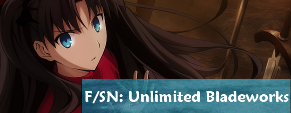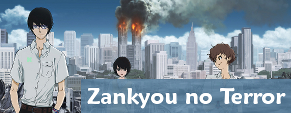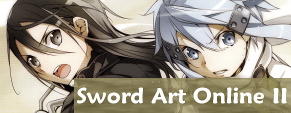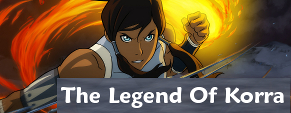Zankyou no Terror – 08-10 Review
 I don’t think an ordinary person would have plutonium to begin with…
I don’t think an ordinary person would have plutonium to begin with…
*sigh* Well, that wasn’t spectacular. Sure, it wasn’t like I had high expectations or anything but I thought, the series would at least be able to deliver some decent amount of depth with its third act. Instead, what we’ve got was Japanese people struggling to insert Western cheese into an anime. And it seems those people don’t seem to understand how or why that particular Western cheese was made, the same which they are now unwittingly using in this series. I had hoped the series would be able to deliver some revelations that would give the whole series more coherence and depth and I feared stuff like what’s happening right now would happen. It’s not the worst-case-scenario at least but it’s also far away from the best-case-scenario. For all its interesting elements, I don’t think anyone will think of it much in a year or so.
Review:
I’m really curious if the Japanese audience likes Zankyou no Terror. I mean, I would like to say that I would’ve noticed it even without reading the interview with Watanabe but starting with Five’s arrival this series just has been a non-stop trope-fest – except it’s all tropes you would usually see in Western series or movies, more specific American ones. It’s not like this series has suddenly become an American TV-show, of course but there’s a lot of stuff here that I would expect to see in an American show and not a lot of stuff I would expect to see in an anime. It has anime-elements but there’s a lot of Western tropes in this so… I don’t know. Really, at this point I don’t really consider this series to be an ambitious or deep one. Its pondering beginning ultimately happened to its detriment and not because of some deeper purpose that would get revealed at the end. I mean, I had hoped that there would be some deeper purpose to a lot of things in this series but I also had the usual fear I have in every case of a mystery-driven plot – and that is the simple truth that most solutions to heavily built-up mystery don’t live up to the built-up tension and expectation.
I mean, it’s not like the series wasted its potential. Sure, the series always had an interesting style that seemed to promise some artfulness that would also be apparent in the story but that hope wasn’t based on anything substantial anyway. After all, the story was driven by its mystery. And with Five’s arrival the series obviously discarded any attempts to build upon the mysterious atmosphere of the beginning.
At this point, the trope-laden second half is far more indicative of what this series wants to go for. The ponderous, slow-moving crawl that were the first four episodes was just a unnecessarily prolonged prologue. And it’s really strange how structurally the story doesn’t seem very coherent in connecting these two parts. For example, Shibazaki investigating Nine and Twelve’s past was a very prominent plot-point in the first four episodes but was then dropped for a couple episode, only to be then picked up again in the 9th and 10th episode. This time around, though, Shibazaki had one revelation after another which in quick succession led to a couple talking-heads who are more than ready to spill the beans on the big conspiracy for whatever reason. Well, actually the reasons are rather obvious as they are some tiresome tropes, one is the guilt-ridden old guy who has nothing left in his lonely life and the other is the stubborn, old politician who tells the truth in an arrogant “You can’t handle the truth!”-manner. Been there, done that – it really is nothing original. But the mystery doesn’t have this consistent pacing throughout this series since in the first episodes it seemed rather aimless and in the 9th and 10th episode it’s simply an obvious storytelling-device to explain what the hell the deal of Sphinx is. Zankyou no Terror isn’t a mystery-series, even though its slow-paced beginning may have hints of that.
But with its focus on action the series’ cinematography has lost most of its artfulness at the same time. God knows that these anime-series always have a rather tight schedule so maybe it’s more about a lack of time than a lack of vision. But fact is that a few uninspired choices are all that remains of the promising start this series had in that category. For example, the series has these “restless shots” of actual static scenes which could indicate tension, a hectic situation or something like that but this series is using that so regularly it has lost any impact or meaning it had before.
Although, I would say this series should still be considered a prime-example for cinematography. After all, the only time most animes get dynamic with their cinematography is when they do fanservice which is… yeah, not great, to put it nicely. Then again, the whole animation-schedule most studios have could be called hellish at best. The anime-industry is one of the biggest in Japan and still animes are considered a medium that needs to be churned out en masse in order to appeal to as many people as possible. “But hey, there’s Ghibli!”, some might say and yeah, Ghibli mostly produces animes that are popular and critically successful but now think back on all the animes you’ve seen in the last five years and list all the non-Ghibli-animes you can describe as “Ghibli-like”. I mean, if it comes to fanservice very few animes seem to be beyond just copying the lamest tropes in the most unimaginative way possible. That doesn’t mean I want the post-Evangelion-era where the anime-industry produced all these animes that threw common sense out of the window when it came to storytelling in a bet to seem as “edgy” as Neon Genesis Evangelion. Just watch SoulTaker and imagine some producer-dude going “Yeah, that’s a thing people want to see weekly!”. Well, that’s another topic but seriously… Why is Gen Urobouchi the only one on the ‘dark and grim’-train? That shit set the fantasy-literature-world on flames when it got introduced there. Psycho-Pass, which I will review tomorrow, was written by Gen as well. I’m not really a fan of Gen as a person because what he says in Interviews and otherwise isn’t as elegant as you might expect from such a prolific writer. But the fact is that Gen is one of THE best writers in the anime-industry right now. Sure, there’s some luck involved in this, too, since he’s responsible for Madoka Magica’s script and I’ve written about the series’ success already (believe me, at some point we will get to see anime-adaptations of those countless spin-offs that already exist in manga-form). Well, you may wonder why I’ve been talking about all this nonsense but Zankyou no Terror offers at least the possibility for a new thingy animes can do: ape Western media – tropes, story-ideas, cinematography, you name it. There’s nothing that would stop animes from using all that shit and giving it their own spin.
 Actually they already had invented photography at that point, so it’s not THAT hard to imagine, I would assume…
Actually they already had invented photography at that point, so it’s not THAT hard to imagine, I would assume…
And Zankyou most certainly has spun its Western-media-inspired story a lot before writing it down. Actually, I would say, it has been spun TOO much. Seriously, this story perfectly encapsulates of what a Japanese person mostly unfamiliar with Western TV might think a good version of their tropes would look like. The series emulates all these tropes without really understanding their meaning or how these tropes could work together with the actual story’s meaning. When that mean, old politician rants about Japan trying to get true independence from the US while doing awful human-experimentation-shit but at the same time this series plays in a world where the US can just willy-nilly do CIA-business in Japan, it’s not really clear what the series actually wants to say here. Or when Nine and Twelve are early on quickly labeled as terrorists but later Shibazaki thinks of Anti-War-protests and how in a different age they would’ve called Nine and Twelve something else, the series doesn’t commit to following that train of thought. Well, although in that particular example, they maybe didn’t because the RAF-people in Germany were even called terrorists back then since they, well, had weapons and killed people, you know, just like Nine and Twelve, even though, they haven’t killed anybody (for some magical reason). I mean, I’ve already talked about the series’ problem that it never actually had defined what it thinks being a terrorist means. And the audience’s perspective of Nine and Twelve is a tad more complicated than to label them as terrorists, I would say. And this lack of understanding that translates to this lack of clarity within the story is the thing that really keeps this story from developing any real depth. Because you can’t just throw shit like terrorism, political corruption and human experimentation at the wall with the hope that it will stick. You need to develop these themes and do more with those than to just present the same-old tropes various movies and series have already covered.
Just take something basic like love. The way love has been used in those last few episodes is SO cheesy, it’s just unbelievable. Without any real build-up these episode have delivered two scenes where characters confess their love – out of the blue. It was… well, implied, I guess, but only as a possibility. Love wasn’t the subtext of any previous scene between the two characters in each respective case. And still the series has these cheesy set-pieces in both cases, the first one on a ferris-wheel and the second time around the love-confession is tied to an act of sacrifice. There’s no build-up and yet there are these set-pieces acting as some sort of culmination of a romance-subplot that simply hasn’t existed up to that point. And again it’s such a typical scene being delivered without real understanding of what it means or how it works within a story. They just appear and nothing more. There’s no finesse, coherence or consistency in these moments. It’s all about the moment instead of the way leading to that moment or the way following that moment for that matter.
Episodes-Rating: 6.5/10
Random Thoughts:
- So they have this super-genius-program that’s supposed to secure Japan’s independence, the program fails and only one child survives. The US somehow caught wind of it and puts a stop to the program – without alerting the global community or the media apparently. So… Japan gives the US their one surviving genius-kid…?! That whole logic seems a tad oversimplified and conspiratorial if you ask me.
- So Twelve has been in love with Lisa since… well, I guess, it’s love at first sight. That’s how these things usually go, right? And Five has been in love with Nine since they were little kids… but that one is easier to understand. It’s the whole childhood-friend-thingy with a little sort-of-yandere-twist, you see. And we all know that whatever a 8-year-old kid says it will remain true to whatever it says until the end of time. Unicorns basically only exist because of people who believed when they were eight years old that horses can grow a horn. So, naturally when an 8-year-old girl tells a boy that she loves him she will treasure that love for the rest of her life. Even when, no, ESPECIALLY when said boy turns out to be an average teenage-pervert. That’s the sort of valuable life-lessons you can take away from most romance-animes.
Posted on September 22, 2014, in Anime, Reviews, Zankyou no Terror and tagged Anime, reviews, Terror in Resonance, Zankyō no Terror. Bookmark the permalink. 2 Comments.


















Without reading which interview with Watanabe? Could you post a link?
(Just found your blog, great reviews!)
LikeLike
I’ve mentioned the interview in my review of the 7th episode but here’s the link again: http://www.funimation.com/blog/2014/07/31/terror-in-resonance-official-interview/
Sorry, it’s my fault for not linking the interview again 😉 . And thanks for liking my reviews ^^ !
LikeLike